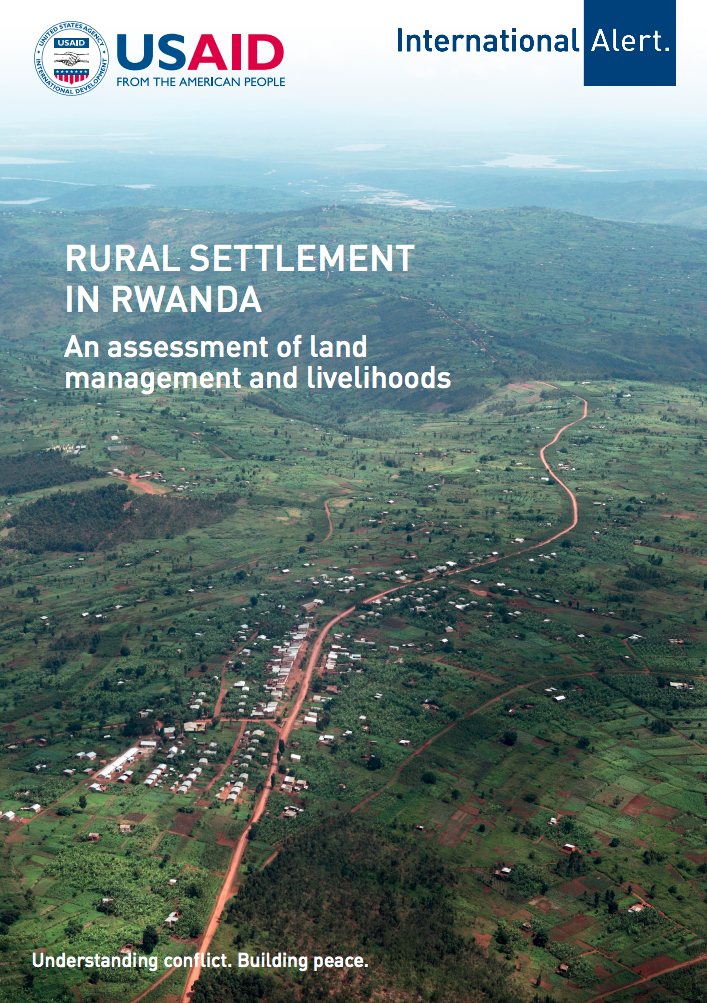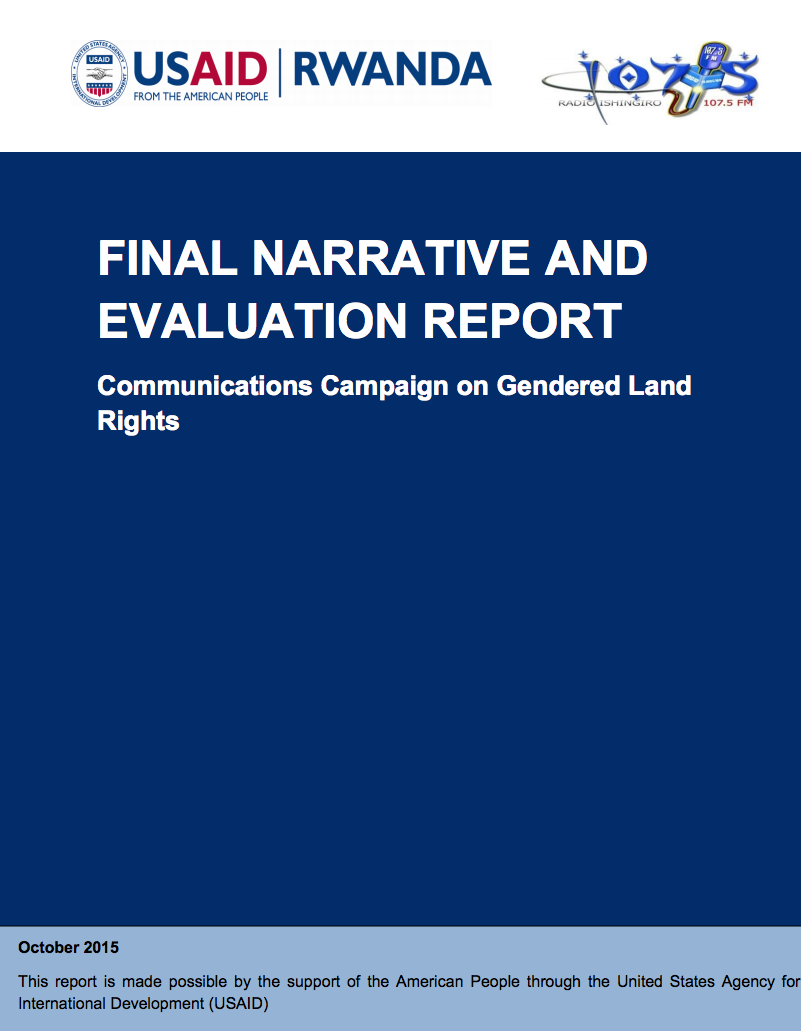The LAND Project is a five year program supported by the United States Agency for International Development (USAID). Its primary goal is strengthening the resilience of Rwandan citizens, communities and institutions and their ability to adapt to land-related economic, environmental and social changes.
Resilience is defined as “the ability to withstand or recover from difficult conditions.” It also comprises the ability of human and ecological systems to recover from shocks or difficult changes, and to transform to a better condition by responding flexibly and creatively to stress factors. In Rwanda, land tends to be one of the primary assets citizens rely on to buffer against difficult conditions and rapid change.
The project’s central objectives are twofold:
1.Increased capacity of local Rwandan institutions to generate high quality, evidence-based research on land-related issues that can be used by the Government, civil society organizations, and Rwandan citizens.
2. Increased understanding of land laws, policies, regulations, and legal judgments on land-related issues by GOR officials, local civil society organizations, research institutes and citizens.
Key outcomes of the project include:
- Holding annual National Land Research Agenda workshops to establish the research priorities of land sector stakeholders that the LAND Project will support. These workshops bring together multiple stakeholders from government, civil society and the research community;
- Supporting research on land-related issues through competitive awards to Rwandan research institutions, universities, and civil society organizations, and providing tailored capacity building assistance to improve research and advocacy capabilities;
- Offering training and other support to legal assistance providers to enhance their capacity to support women and vulnerable populations in understanding and realizing their land rights;
- Training local land authorities on the implementation of the land law and regulations.
- Carrying out research on critical land issues, including gendered land rights in practice, community rights to resources in and around protected areas, and expropriation.
- Managing a land-focused website to improve research, communications, and policy advocacy efforts that are focused on land, and to act as a vehicle for enhancing collaboration between actors working in the land sector;
- Providing organizational development support to civil society organizations supporting women’s land rights.
- Supporting innovative and coordinated communications approaches by civil society and government that enhance the knowledge of Rwandan citizens about research findings and their land rights.
Because the LAND Project is a five year endeavor, we are seeking an institution that has the interest, capacity, skills and resources to eventually take over hosting and maintenance of the website, ensuring it stays up-to-date and relevant to the land sector stakeholder community. If your organization is potentially interested in assuming management of this site, please contact us and tell us why you believe your institution would be an ideal candidate.
Members:
Resources
Displaying 1 - 5 of 149The Rights of Women in de facto Unions to Land and Property
Includes methodology, literature review, legal analysis, experiences and rights to land of women in de facto unions in Rwanda, root causes of de facto unions, the costs of illegitimacy, recommendations for strengthening the rights of women in de facto unions. Until policy and law protect the rights of women in de facto unions and people accept women in de facto unions as legitimate wives and contributors to household prosperity, they will continue to be chased away by their husbands or families-in-law, and endure the resulting negative economic, health, and social consequences.
LAND Project Report: Vulnerability and Knowledge of the Legal Framework on Land
This report presents the results of a small scale household survey that was conducted in May
2015 to assess the extent to which rural Rwandan citizens are vulnerable or resilient to
environmental, market and land tenure risks and the level they understand the laws and rights
related to land. The report also compares the results of the survey with those from the baseline
survey conducted in May 2014, and seeks to inform the LAND Project of its progress in
achieving objectives entailed in the project’s results framework, namely:
Rural Settlement in Rwanda: An assessment of land management and livelihoods.
Residential land in Rwanda is scarce due to hilly terrain, a high population and a focus on agricultural growth to address food security concerns. The situation worsened following the 1994 genocide against the Tutsi, which led to extensive destruction of houses and infrastructure, leading to thousands of Rwandans becoming homeless. To address these concerns, the government embarked upon a resettlement programme to regroup people into planned residential areas, ‘imidugudu’, the aim of which is to provide improved quality of life for the population through the provision of basic needs.
Rural Settlement in Rwanda: An assessment of land management and livelihoods.
Residential land in Rwanda is scarce due to hilly terrain, a high population and a focus on agricultural growth to address food security concerns. The situation worsened following the 1994 genocide against the Tutsi, which led to extensive destruction of houses and infrastructure, leading to thousands of Rwandans becoming homeless. To address these concerns, the government embarked upon a resettlement programme to regroup people into planned residential areas, ‘imidugudu’, the aim of which is to provide improved quality of life for the population through the provision of basic needs.
Final Narrative and Evaluation Report on Gender and Land Rights
Between October 2014 and October 2015, Radio Ishingiro with the support of USAID
Land Project implemented a Communications Campaign focused on influencing the
attitudes and mindsets of men and boys about gender-equal land rights to overcome
traditional norms and beliefs that hinder women from exercising their rights to land. In
particular, the campaign focused on overcoming traditional beliefs and norms that
hinder women from exercising their rights to inter vivos gifts of land (“umunani”)1
, land





